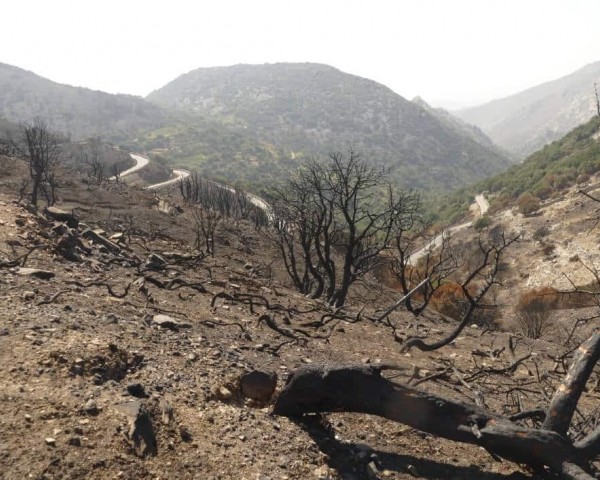In 2023, Greece was engulfed in an unprecedented wave of wildfires and a scorching heatwave, followed by the hottest winter ever recorded. This alarming sequence of events has left the country bracing for a potentially devastating summer, particularly forest fires.
The World Bank reports that over 30% of Greek territory is covered in forests, heightening the concern. In 2023, approximately 175,000 hectares of forests and agricultural land were ravaged by fires, leading to the tragic loss of over 20 lives. These devastating forest fires occurred during a two-week heatwave in July, the longest on record in Greece.
During this time, Greece conducted its largest evacuation operation, requiring around 20,000 people, mainly tourists, to leave their homes and vacation spots on the island of Rhodes in the southeast. Temperatures soared to 46 degrees in Gythion, located in the Peloponnese peninsula in the southwest.
This Mediterranean country, accustomed to summer heat waves, has experienced “the hottest winter on record,” according to Costas Lagouvardos, research director at the National Observatory of Athens.
Even though summer has not officially begun, heat records were broken during the first week of June, with temperatures reaching 39.3°C in some areas.
Major Warning Sign
Large forest fires can occur when temperatures are high, which means drought. Last August, a huge fire in Dadia National Park, close to the border with Turkey, was classified as the most destructive ever recorded in the EU.
This year, at the end of March, a fire broke out at over 1000 meters in the mountains of Pieria (central Greece). Costas Lagouvardos calls this “a major warning sign.” According to Nikolaos Roumeliotis, deputy fire chief, the residents could not believe the fire could have started on previously snow-covered slopes.
“The early occurrence of a fire at such high altitudes is unprecedented in my years of studying forest fires,” noted Theodore Giannaros, a meteorologist specializing in wildfires at the Athens Observatory.
“This is extremely concerning as it indicates a trend towards a hotter and drier climate,” Giannaros added. He also expressed concerns that ecosystems previously less susceptible to fires could gradually become more vulnerable.
Thousand Fires between January and May
According to firefighters, Greece saw a 28% increase in forest fires from January to May compared to the previous year. By the end of April, Prime Minister Kyriakos Mitsotakis expressed regret over a thousand recorded fires.
In response to this escalating threat, Greece has launched a 2.1 billion euro project to revamp its civil protection infrastructure, marking its most ambitious effort to date. By 2025, the country is set to acquire new water bombers, helicopters, fire trucks, thermal cameras, and over a hundred drones, with the primary funding coming from the EU.
To address this year’s challenges, the strategy is to deploy water bombers promptly when a fire erupts to gain time. A national emergency exercise involved firefighters, police, and ambulance services. However, experts emphasize the persistent issue of insufficient coordination among the firefighting services in Greece.












